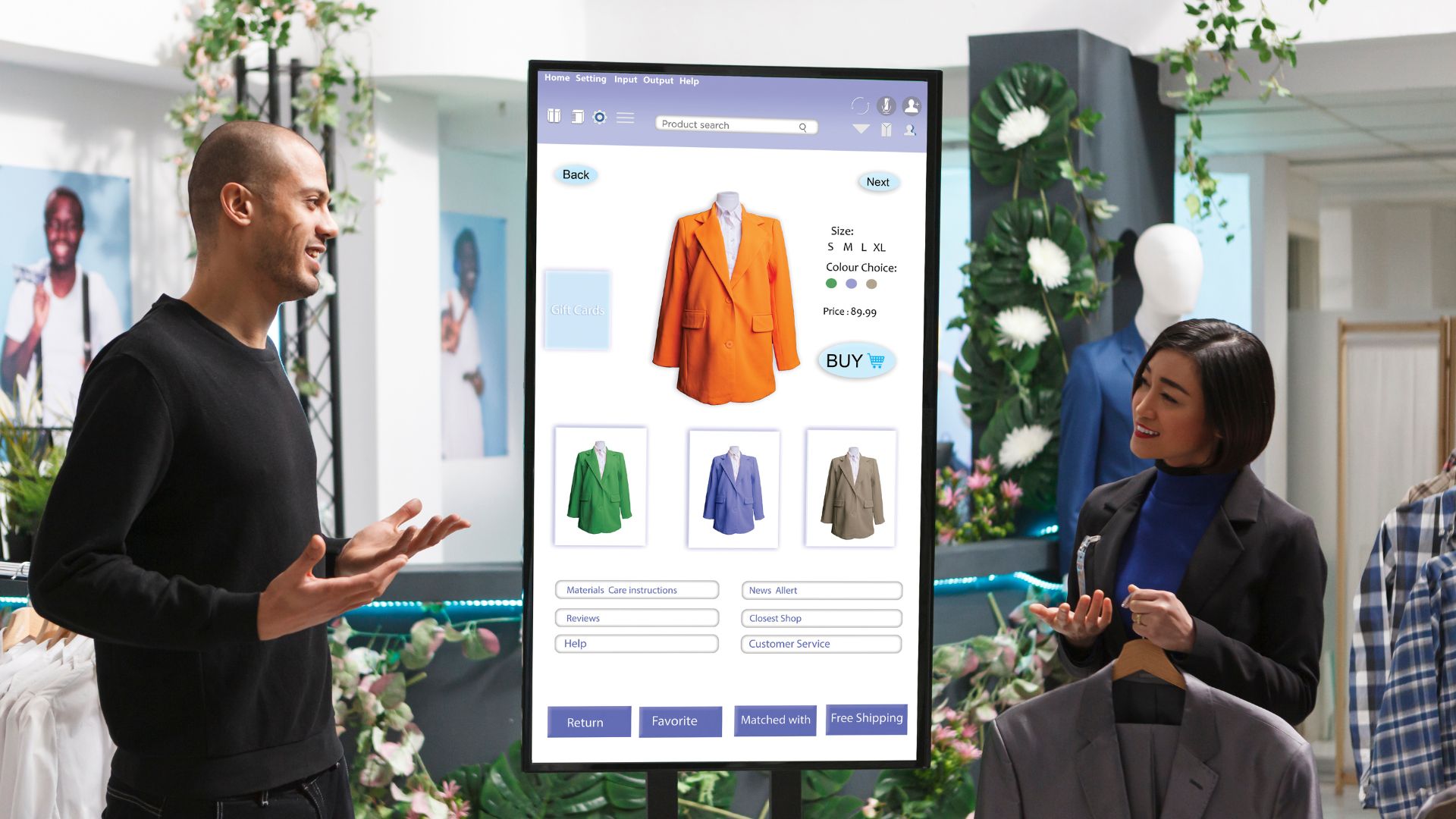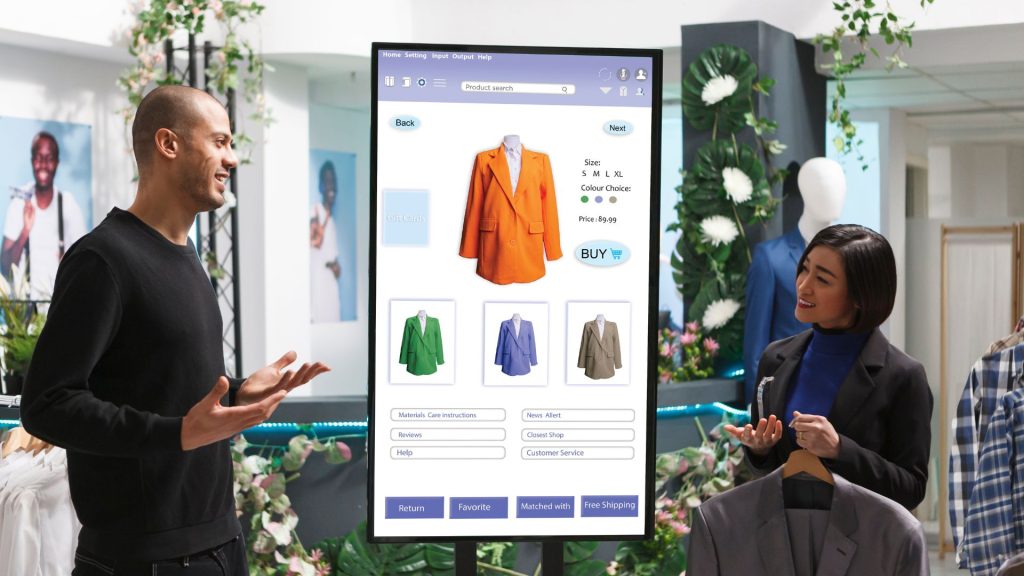Learn How AI is Transforming Personalized Shopping Experiences

Learn How AI is Transforming Personalized Shopping Experiences
#AI #Retail #Tech

Introduction
The retail industry is undergoing a significant transformation driven by advancements in Artificial Intelligence (AI). Personalized shopping experiences have become a key differentiator for retailers aiming to attract and retain customers in a highly competitive market. AI technologies enable retailers to analyze vast amounts of data to understand customer preferences, predict buying behaviors, and deliver tailored experiences both online and in-store.
This article explores how AI is revolutionizing personalized shopping, the benefits it offers to consumers and businesses, and the future trends shaping the retail landscape.
AI in Personalizing the Shopping Experience
AI technologies are being leveraged to enhance personalization in several ways:
Product Recommendations
Machine Learning algorithms analyze customer data, such as past purchases and browsing history, to provide personalized product recommendations. This increases the likelihood of purchase and enhances customer satisfaction.
Dynamic Pricing
AI enables retailers to adjust prices in real-time based on demand, inventory levels, and customer profiles, offering personalized pricing that can incentivize purchases.
Personalized Marketing
AI-powered tools create targeted marketing campaigns by analyzing customer segments and predicting responses to promotions, leading to more effective and personalized outreach.
Virtual Assistants and Chatbots
AI chatbots provide personalized customer service, answering queries, offering product information, and guiding customers through their shopping journey.
In-Store Personalization
AI technologies like facial recognition and beacon technology enable personalized in-store experiences, such as tailored promotions and assistance.
Benefits of AI-Powered Personalization
Integrating AI into retail personalization offers numerous advantages:
- Enhanced Customer Experience: Personalized interactions make customers feel valued, improving satisfaction and loyalty.
- Increased Sales and Revenue: Tailored recommendations and promotions drive higher conversion rates and average order values.
- Efficient Marketing Spend: Targeted campaigns reduce wasted marketing efforts and improve return on investment (ROI).
- Data-Driven Insights: AI provides valuable insights into customer behavior, informing business strategies.
- Competitive Advantage: Offering personalized experiences differentiates retailers in a crowded market.
Key AI Technologies in Retail Personalization
Several AI technologies are instrumental in transforming personalized shopping experiences:
Machine Learning
Machine Learning algorithms learn from customer data to predict preferences and behaviors, enabling personalized recommendations and offers.
Natural Language Processing (NLP)
NLP powers chatbots and virtual assistants, allowing them to understand and respond to customer inquiries in a human-like manner.
Computer Vision
Used in applications like visual search and augmented reality (AR), computer vision helps customers find products and visualize them in real-world contexts.
Predictive Analytics
Predictive models analyze trends and customer data to forecast demand, optimize inventory, and tailor marketing strategies.
Case Studies
Retailer M: Boosting Online Sales
Retailer M implemented AI-driven product recommendations on their e-commerce platform, resulting in a 35% increase in online sales and improved customer engagement.
Brand N: Enhancing In-Store Experience
By utilizing AI-powered facial recognition and customer data, Brand N offered personalized in-store promotions, leading to a 20% increase in repeat customers.
Marketplace O: Personalized Marketing Campaigns
Marketplace O used AI to segment customers and tailor marketing messages, resulting in a 25% improvement in campaign effectiveness and higher ROI.
Challenges and Considerations
While AI offers significant benefits in personalization, there are challenges to address:
Data Privacy and Security
Collecting and using customer data must comply with privacy regulations. Retailers need to ensure data is securely stored and used ethically.
Integration Complexity
Implementing AI solutions can be complex and may require significant investment in technology and expertise.
Customer Trust
Over-personalization can feel intrusive to customers. Finding the right balance is crucial to maintain trust and avoid alienating customers.
Data Quality
AI’s effectiveness depends on the quality of data. Inaccurate or incomplete data can lead to poor personalization efforts.
Future Trends in AI and Retail Personalization
The future of AI in retail personalization is promising, with emerging trends including:
Augmented Reality (AR) Shopping
AR technologies will allow customers to virtually try on products or see how items fit into their environment, enhancing the shopping experience.
Voice Commerce
AI-powered voice assistants will enable customers to shop using voice commands, making the process more convenient and personalized.
Hyper-Personalization
Advanced AI algorithms will deliver even more personalized experiences by considering real-time context and deeper customer insights.
Ethical AI Practices
There will be a greater focus on ethical AI, ensuring transparency, fairness, and compliance with privacy standards in personalization efforts.
Conclusion
Artificial Intelligence is significantly transforming personalized shopping experiences by enabling retailers to understand and anticipate customer needs better than ever before. By leveraging AI technologies, businesses can enhance customer satisfaction, drive sales, and gain a competitive edge in the retail industry. As AI continues to evolve, its role in personalization will become increasingly integral to retail strategies.
Embracing AI-powered personalization is not just an innovation but a necessity for retailers aiming to meet the expectations of today’s consumers and thrive in the future marketplace.

